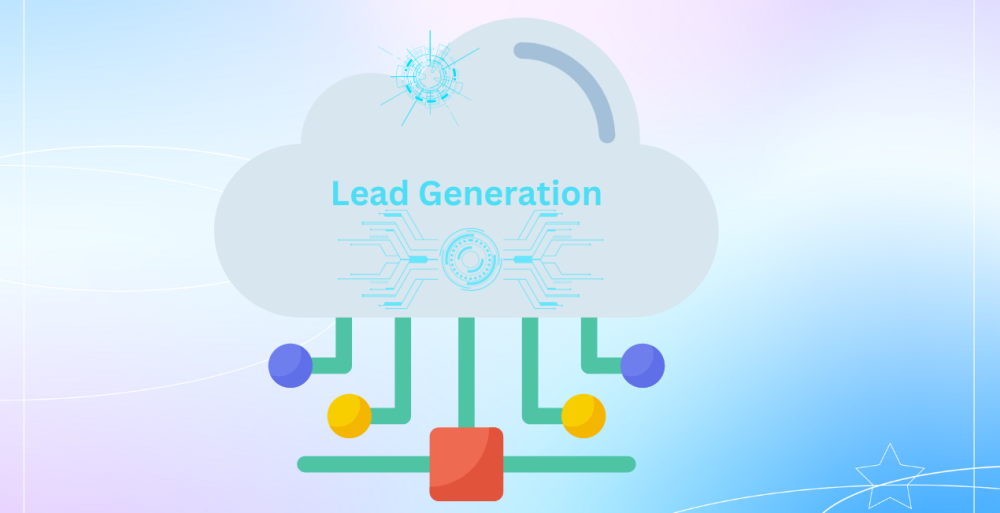🔥 Hot Off the Press: Our Latest Review on the Best SEO Tools of 2024. Don’t Miss Out!🔥— Read Now!
Best Digital Marketing Tools For Lead Generation

Lead generation is basically about finding and attracting potential customers who are interested in your products or services.
It’s the lifeblood of any business that survives on sales.
But here’s the thing, the internet has made customer behavior more complex.
People now research, compare, and scrutinize their options before making a purchase. That’s where digital marketing tools come in.
Digital marketing tools are designed to help businesses identify and reach out to potential leads more effectively.
These tools use data-driven methods to find individuals who are likely to be interested in what you’re offering.
Whether it’s through email campaigns, social media posts, or SEO, these tools make finding leads easier and more efficient.
One of the biggest benefits of using digital marketing tools for lead generation is efficiency.
Gone are the days of cold calling or sending out mass mailers hoping someone might bite.
Digital tools allow you to target specific audiences who are more likely to convert into customers.
Plus, they save a ton of time and resources by automating repetitive tasks.
Scale is another massive advantage.
With the right digital tools, even a small business can reach a global audience.
Tools such as email marketing platforms can send personalized messages to thousands of people at once.
SEO tools can optimize your website to attract visitors from all over the world.
Social media tools can help you engage with users on multiple platforms in real-time.
And let’s not forget targeting accuracy.
Digital marketing tools can analyze user data to create detailed profiles of your ideal customers.
means you can tailor your marketing efforts to meet the specific needs and preferences of your target audience.
The result? Higher conversion rates and better ROI. I mean, who doesn’t love a good ROI?
Discover Helpful Top Digital Marketing Tools to Boost Your Lead Generation Efforts Now

Email marketing platforms are a game-changer for lead generation.
Tools like Mailchimp, ActiveCampaign, and HubSpot offer features that make connecting with potential customers a breeze.
From customizable templates to advanced analytics, these platforms help you craft messages that resonate with your audience.
And the best part? Automation features mean you can set up drip campaigns, so your emails reach the right folks at the right time, without you lifting a finger.
SEO tools are essential for getting noticed. SEMrush, Ahrefs, and Moz are some heavy hitters in this space.
These tools help you uncover the keywords and phrases your ideal customers are searching for.
They also provide insights into your competitors’ strategies, so you can stay one step ahead.
By optimizing your website’s content and structure, you make it easier for search engines to find you, driving more organic traffic your way.
Social media management tools like Hootsuite, Buffer, and Sprout Social can amplify your reach.
These platforms let you schedule posts, engage with your audience, and monitor performance from one dashboard.
They can even help you identify trending topics, ensuring your content stays relevant and engaging.
Plus, the analytics features can show you what’s working and what isn’t, so you can adjust your strategy on the fly.
Landing page and conversion optimization tools like Unbounce, Leadpages, and Optimizely focus on turning visitors into leads.
These tools offer drag-and-drop builders, A/B testing, and analytics to help you create high-converting landing pages.
They allow you to experiment with different headlines, images, and calls-to-action to find what works best.
It’s all about making it as easy as possible for visitors to complete your desired action, whether that’s signing up for a newsletter or downloading a whitepaper.
Best Practices for Maximizing Lead Generation with Digital Marketing Tools

Integrating multiple tools can create a powerhouse lead generation strategy.
When you combine the capabilities of email marketing platforms, SEO tools, social media management tools, and landing page optimizers, you get a comprehensive approach that covers all bases.
This integration allows for seamless data flow, ensuring that each tool enhances the performance of the others.
Personalizing content and communication is key.
Gone are the days of generic messages. Today, people crave tailored experiences.
Using CRM data, segmentation, and automation features, you can deliver specific content that speaks to individual needs and preferences.
Personalized emails, targeted social media ads, and customized landing pages can significantly boost engagement and conversion rates.
Regularly analyzing and optimizing your tool performance keeps you ahead of the game.
Success in digital marketing isn’t a set-and-forget kind of deal. It requires constant monitoring and tweaking.
Tools like Google Analytics, combined with your chosen marketing platforms, offer valuable insights into what’s working and what isn’t.
Use this data to make informed adjustments, ensuring your strategies are always on point.
Staying updated with the latest trends and tool enhancements can give you a competitive edge.
Digital marketing is a fast-evolving field, with new tools and features being released regularly.
Subscribing to industry blogs, joining webinars, and participating in online forums can help you stay in the loop.
By continually upgrading your toolkit, you equip yourself to tackle new challenges and seize fresh opportunities.
